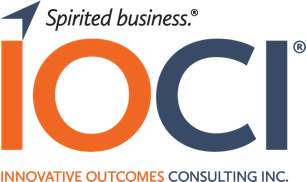Artificial intelligence is no longer a futuristic prediction.
Companies are jumping on board with machine learning, cognitive computing, natural language processing, deep mind and neural learning within the employee ranks. Associations are embracing training for their professionals.
But the message for everyone who earns a paycheck: embracing AI is not about worker displacement. Instead, it’s a useful tool paired with human judgment to allow HR professionals to focus on strategic planning. A report by Ontario’s Human Resources Professionals Association (HRPA) concludes that AI will be a boon when it comes to reducing HR’s administrative burden, will help recruit and reduce bias in that process, and should improve employee engagement.
“The future is here and employers have good reasons to embrace AI’s increasing role in HR functions,” Scott Allinson, vice-president of public affairs at HRPA in Toronto, told Canadian HRReporter. HR will be a great role model in this message: according to Allinson, HR is one of the few professions that will see minimum job displacement “because you still need that human intervention,” he explains.
But the good news doesn’t stop there. According to Peter Lee, co-head of Microsoft Research, there’s a “bloody war for talent in this space.” He told Fortune in 2016 that top-flight minds command offers “along the lines of NFL football players.”
The good side
Did you know that the open concept design so many companies embraced is actually a detriment to productivity? Yep, despite what the gurus told us back then, current research shows that the cubicle system that dominates 70 percent of our offices reduces productivity by 15 to 28 percent in the average office.
For starters, as many as 40 percent of a department’s employees are introverts who don’t function at their best in the spotlight. They need quiet solitude in order to focus.
So why were the experts off on this concept? They simply didn’t have enough data. Their research was limited to time-consuming one-on-one interviews or focus groups, which are rife with ways to skew the outcome. AI will mean companies can measure an actual day: how many seconds someone spends in idle chitchat, the path they take from their desk to the restroom. Add this feedback to the cloud, crunch the numbers and new understandings on productivity emerge.
This kind of technology helped Bank of America shift to overlapping breaks for call center workers that resulted in a 23 percent increase in performance. There are other applications that HR professionals imagine where AI predicts potential conflicts within a team and suggests an office setup that minimizes them.
AI’s strength lies in monitoring employee performances
But most of all, AI’s strength lies in monitoring employee performances. Shifting evaluation to AI means managers can ditch all those hours they spend ranking employees via surveys and interviews, and instead pour that time into recruiting, training and coaching. Workers will focus on what they need to do next rather than making amends for the past.
AI’s strength lies in monitoring employee performances. Shifting evaluation to #AI means managers can ditch all those hours they spend ranking employees and pour that time into training and #coaching. Share on X
And, just as Amazon now uses data to tee up the products you’ll buy next, AI will learn to focus on the characteristics that companies and managers want from workers, Business Insider writes.
AI evaluation will also transform the worker-employer relationship
In other words, AI evaluation will also transform the worker-employer relationship. Staff would instead morph into high-performance athletes that demand creative freedom to work—and achieve results—in partnership with specific teams or people rather than a company or supervisor, Richard Tyson, the connected places strategy director at Gensler, the world’s largest architecture firm, tells Business Insider.


